Right or Shame?
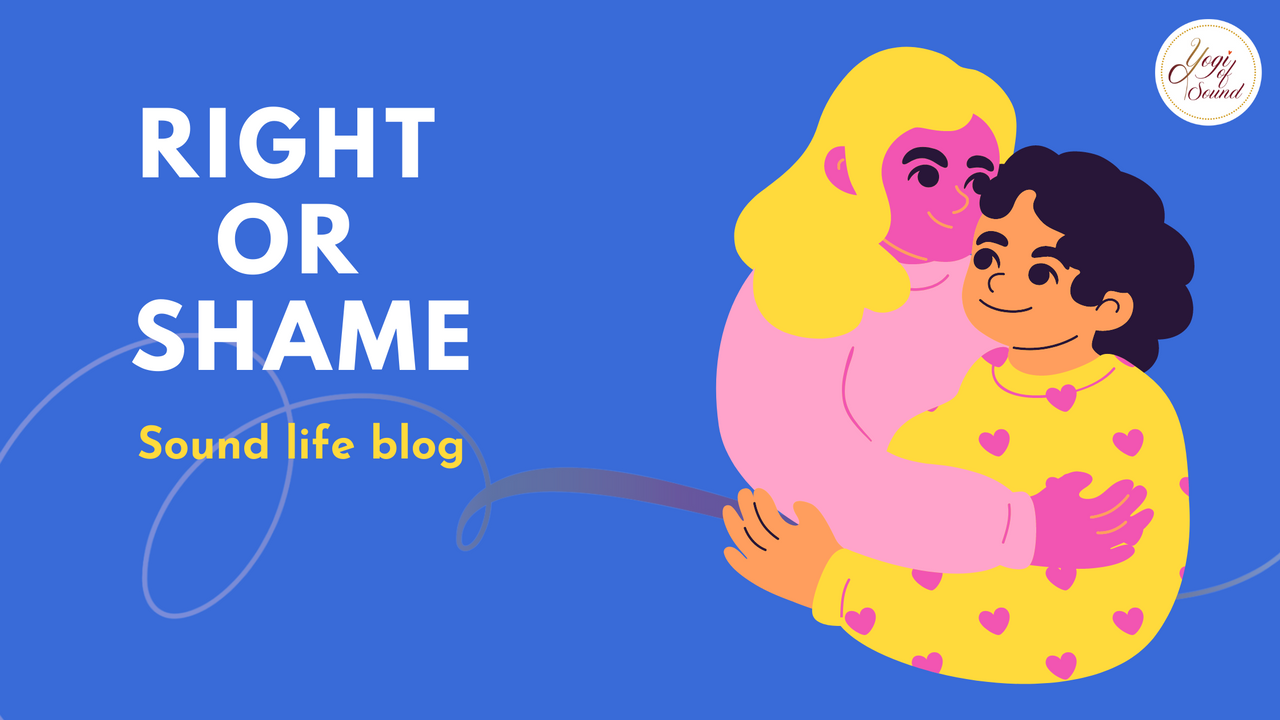
Have you noticed that there is a common word that seems to be used more than usual recently? The one I’m often hearing is "Should", and there has been hardly a conversation in the past weeks where it didn't crop up more than once.
Phrases like "I should use the time of lockdown to gain extra skills", "I should exercise more", "I should be more disciplined" are among the most common. Those phrases usually continue with the admission that whatever should have been done has not been done. The feelings that come with it are shame, embarrassment and guilt.
When I noticed the pattern, I began to reflect on the use of the word "should", and the role shame plays in our relationships and society. Even if we don't know how the sentence will continue, the appearance of "should" signals that the speaker has failed to accomplish something, or expects failure even before acting. So, what are we really saying when we use this word? I believe that it is an expression of dissonance, and it...
Your Bright Shadow
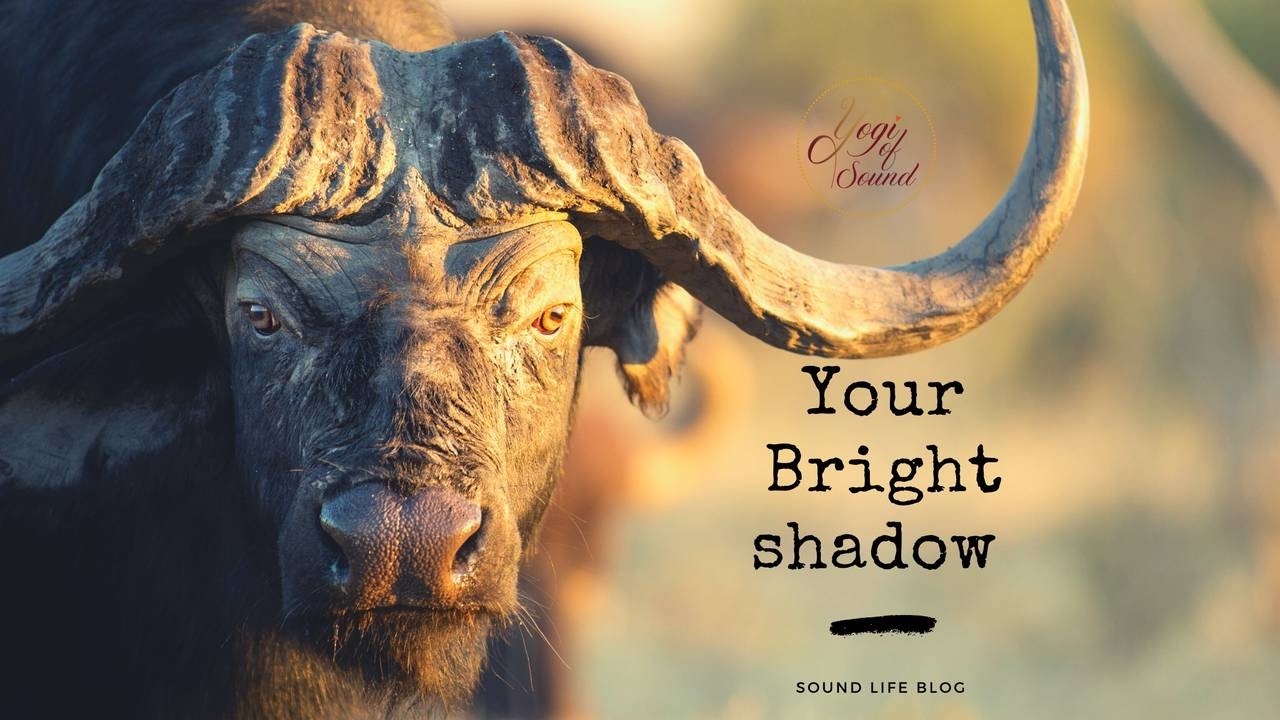
Who are we, really? As human beings, we are a mystery to ourselves - a jigsaw puzzle of biology, ideas, concepts and illusions. Then, there is this intangible, invisible part of our nature, which we call by many names - spirit, intuition, soul, divine spark etc. At some point, we all ask ourselves: "What is human nature? Are we inherently good or evil?"
Countless philosophers have answered this question, but most of those answers have not found much traction in real life. When it comes down to it, we have to find our own response, one that allows us to live with ourselves. We have an inherent need for life to make sense. Sooner or later we settle on an idea that we are comfortable with, so we can get on with the business of living.
Our reality is defined by our culture, religion, our social networks etc. Based on this, we develop a set of concepts and beliefs that determine what we consider as "good" and "bad". Being good is usually rewarded, and bad behaviour is punished....
The Sound of Truth in a World of Fake News

Lately, many people have told me that they’ve stopped watching the news or reading the newspaper because it makes them feel depressed and upset.
On top of that, many wonder whether they can even trust the media to report the truth. But it’s not just the traditional media and news outlets that are under suspicion. Social Media and online communities are under scrutiny due to a flood of inaccurate information that has swept through the internet in recent years.
The term "Fake News" highlights the loss of public trust in the media. "Conspiracy theory" is another expression of distrust and suspicion that is coming up a lot lately. While conspiracy theories are nothing new, in the past they hardly ever entered mainstream debates and used to be considered fringe topics.
Does this mean that we are not just facing a public health crisis, but also a loss of truth and veracity?
How do we know that something is true? Even a book merely presents in print what one...
What is the Sound of One Hand clapping?

The holiday season is about to start, yet most of us are separated from family and friends by national or regional lockdowns. Every family has some sort of tradition or long-established habit involving the festive season and the end of the year. Having to break with those leaves many feeling oddly bereft and unmoored.
However, it is also a chance to contemplate on how deeply connected we are, and how much we depend on those ties. Over the past weeks, I have often urged you to reflect on your self-perception and your sense of identity. We have explored how your self-expression shapes your being. Now I would like to continue this flow of contemplation and look at how our relationships influence us. Human beings are social creatures, and our wellbeing is intricately linked with our community and our social networks. Cut off from those structures, we are set adrift, and confronted with feelings of insecurity, fear, loss and loneliness. Are there ways to meet such challenges in a...
What does your voice tell about you?
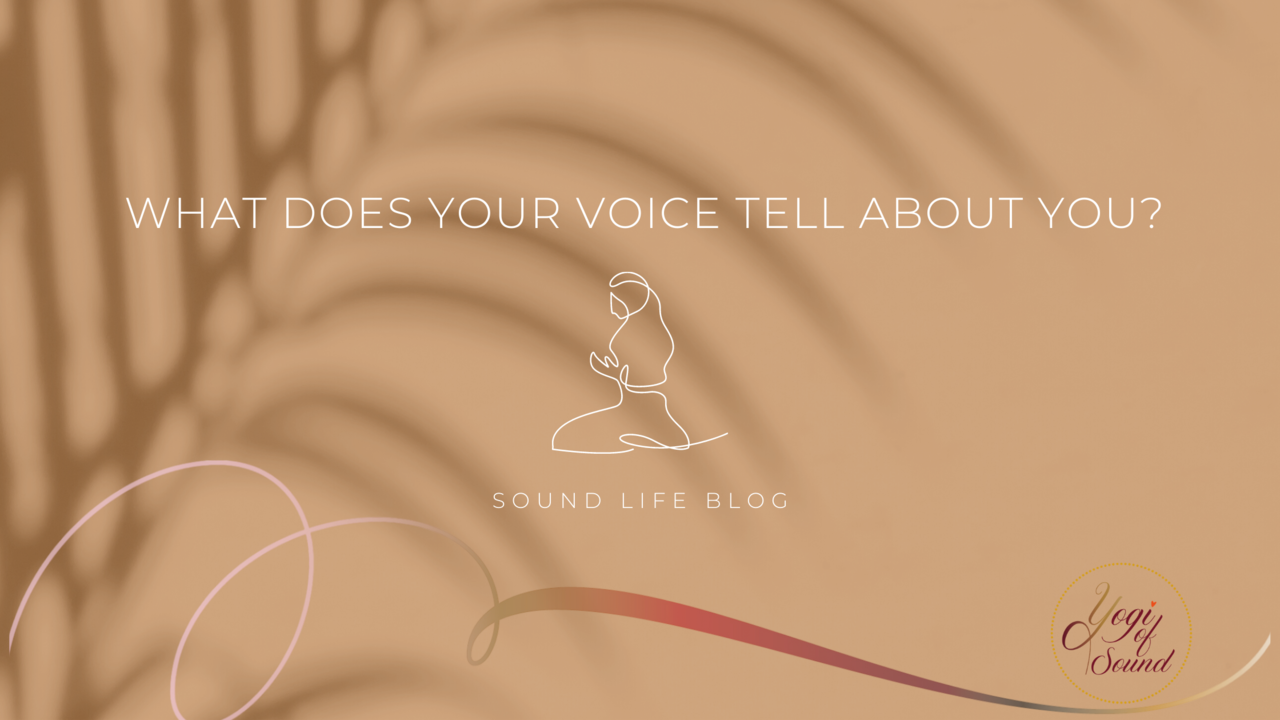
I was getting ready for a Zoom meeting a few days ago. Whilst I was waiting for the other participants to come online, my video screen was the only one visible, as my reflection stared back at me. With nothing else to do, I simply looked on, and it made me remember an expression I had once heard: “The eyes are the windows of the soul”. It is an intriguing thought, isn’t it? The eyes are very expressive, and we can convey a lot through them. This is even more obvious right now, with people wearing masks that obscure the lower half of their faces.
Being a Naad Yogi and working with Sound, I tend to focus more on people’s voices than on their appearance. In my opinion, the voice is the manifestation of a person’s entire being, not just of the soul, but also of the mind and body. The voice reveals it all: how we feel, how healthy we are and what the relationship with ourselves is like.
Did you ever listen to yourself closely when talking to...
Self- Empowerment is the ultimate Self-Care
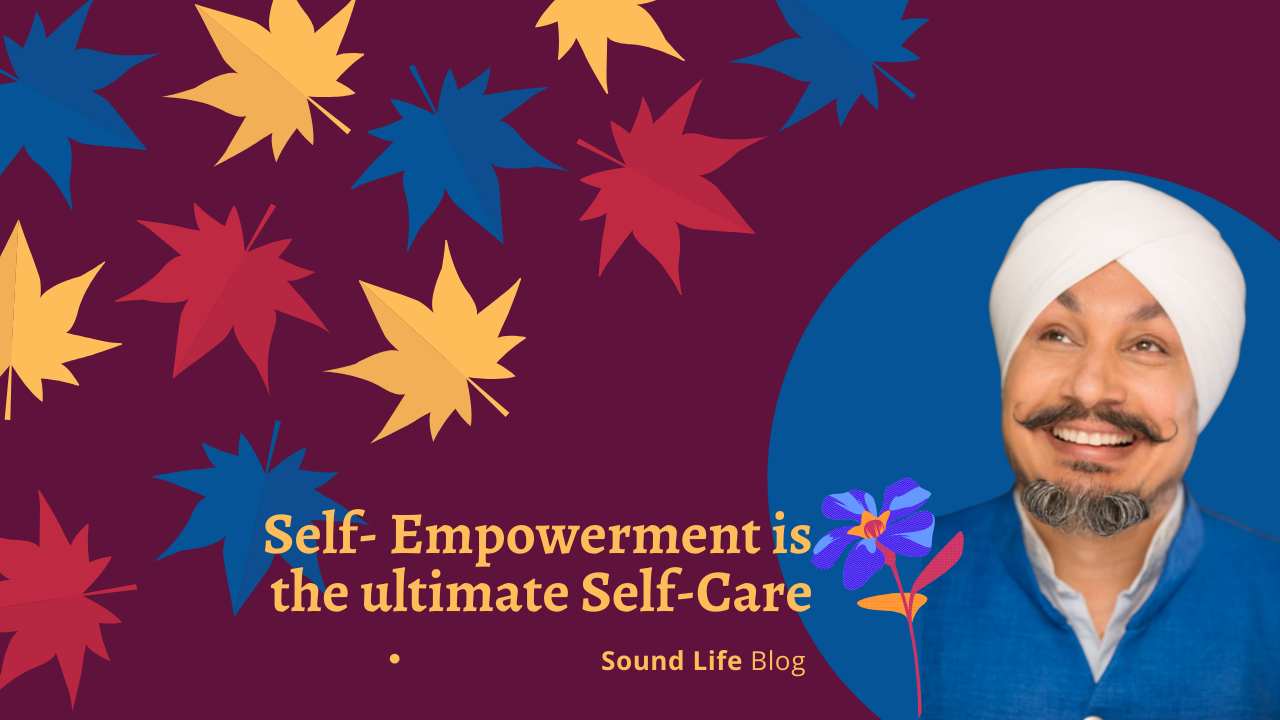
Welcome back and congratulations to everyone who took part in my two-week challenge! I hope you enjoyed it and gained new insights. The title of my last blog was “A culture of Silence”, and after reading it, you might have wondered about my use of the term. Isn’t this expression used to describe a toxic environment which enables abuse and silences victims? Indeed, it is. However, by now, you probably have an idea about the reason why I used this particular term.
What is commonly described as “a culture of silence” can only exist because of the communication gap between individuals, and a widespread emotional disconnection. Imagine that we were all deeply connected to our emotions and that we would communicate authentically. In that case, we would be building strong relationships and deep connections with each other daily. Do you think that it would be possible in such a society to ignore the suffering of victims, let alone enable abuse of any kind?
...
A Culture of Silence
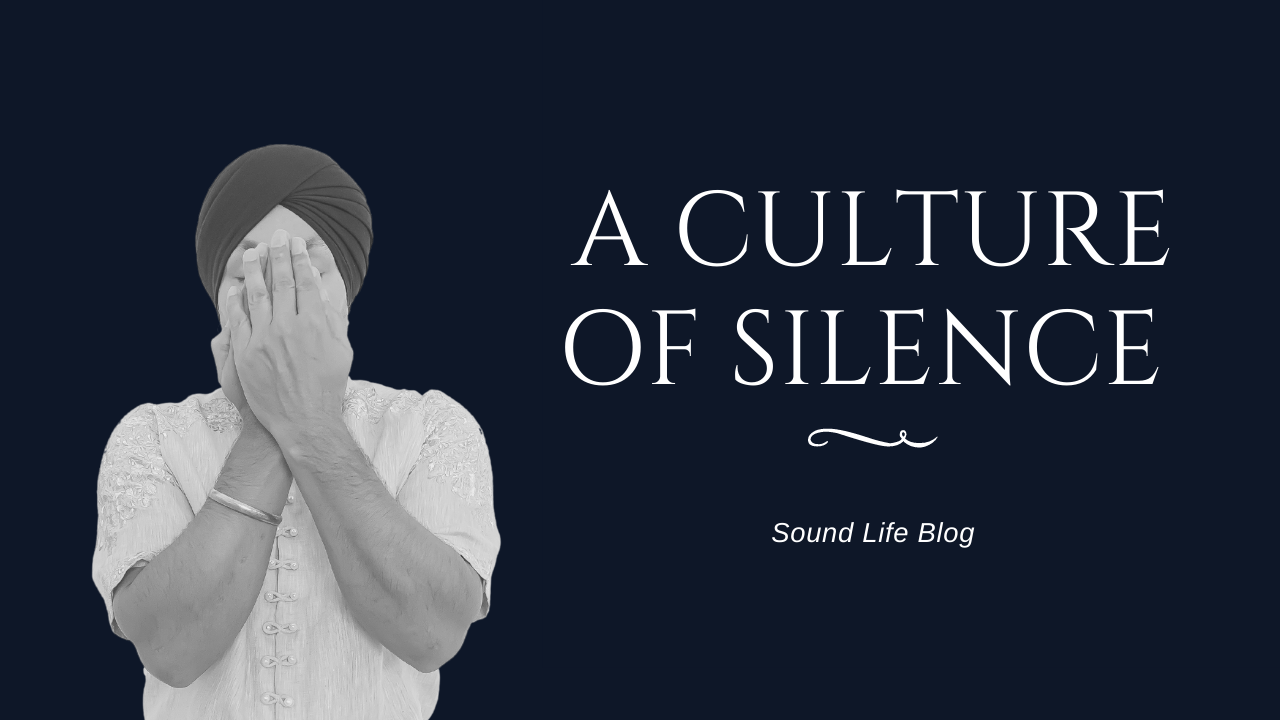
These days, I find my thoughts drifting back to the time when the spread of a virus started lockdowns all over the world, and the majority of people found themselves in sudden isolation. Now, a new round of lockdowns is underway all across Europe, and I feel a sense of déjà-vu. The streets are empty, the usual hustle and bustle of the weekdays are missing, and my steps on the pavement echo strangely in my ears.
The lockdowns have highlighted the importance of human connection, of social interaction and our ability to communicate. Staying in touch with each other, with family members, loved ones, friends, and colleagues is something that we tend to take for granted – until recently. These days, we experience a new kind of vulnerability with the realization that human connection is crucial for our emotional wellbeing. We find ourselves enduring periods of isolation we never knew before, and the future is uncertain - we might have to deal with similar...
Yoga of Sound (Naad Yoga): My survival kit for life in a transforming world

I ran into my elderly neighbour earlier today, and we had a quick chat about the weather and what is going on these days. “The world is going to hell in a handbasket” she concluded, “I have seen and lived through much in my long life, but this… “, she shook her head and hurried back into her house. As I was standing there, watching her vanish into the safety of her home, I realized that most people I talk to these days feel more or less the same.
Many are struggling with a sense of dread and uncertainty, and watching the news certainly seems to confirm the validity of such feelings: a raging pandemic, political turmoil, climate change and the looming of a global recession are all reasons to be concerned about our future, and the future of our children.
My perspective on the current situation is this: the world is changing in unpredictable ways, and nobody knows where those changes will lead. The uncertainty, and the lack of control we experience...
